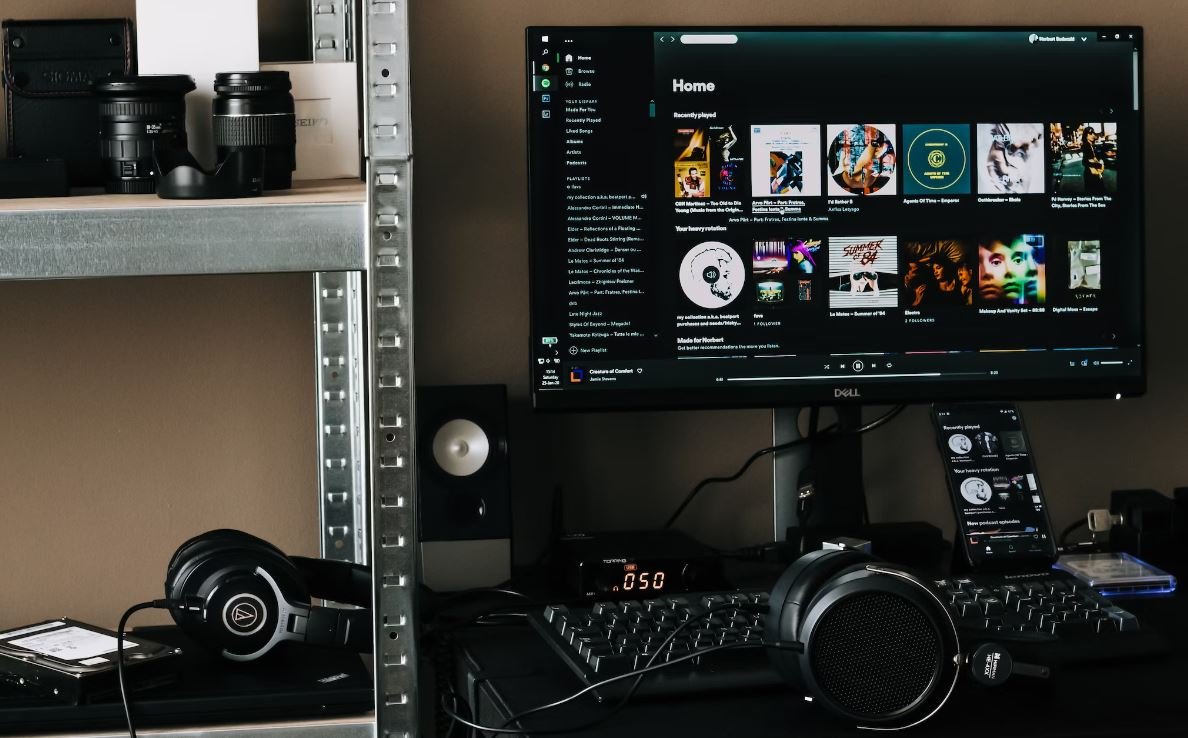Footage Researcher
A footage researcher is a professional in the film and television industry who assists in the process of finding and licensing footage for use in various media projects. They play a crucial role in helping producers, editors, and directors find the footage they need to enhance their storytelling.
Key Takeaways
- Footage researchers help find and license footage for media projects.
- They possess strong research skills and knowledge of copyright laws.
- Attention to detail and strong organizational skills are essential for a successful footage researcher.
Responsibilities and Skills
A footage researcher’s primary responsibility is to search for and locate appropriate footage that aligns with the project’s requirements. They need to be skilled in conducting thorough research, utilizing various resources such as databases, archives, media libraries, and online platforms dedicated to stock footage.
They must have a keen eye for detail and be able to identify the right footage based on its content, quality, and relevance to the project.
In addition to research skills, a footage researcher must have a solid understanding of copyright laws and licensing agreements. They need to ensure that the selected footage can be legally used in the project without infringing any rights. This requires knowledge of different licensing options, such as royalty-free, rights-managed, and creative commons.
Research Process
The research process typically involves creating a detailed brief based on the project’s requirements, including specific scenes, historical periods, locations, or other criteria. Once the brief is finalized, a footage researcher would begin searching for suitable footage using various resources and techniques.
- Utilizing professional footage libraries
- Browsing online platforms dedicated to stock footage
- Contacting archive centers and libraries
Throughout the research process, the footage researcher must maintain meticulous records of the footage they find, including the source, licensing information, and any restrictions on its usage.
Licensing and Negotiation
Once the desired footage is identified, a footage researcher must ensure that appropriate licenses are obtained for its usage. This involves negotiating with rights holders, understanding licensing terms and fees, and obtaining the necessary permissions and clearances.
In some cases, the footage researcher may need to negotiate rights usage for exclusive or limited usage, depending on the project’s requirements and budget. They also need to ensure that the licensing terms and agreements are suitable for the intended media platform and distribution requirements.
Footage Researcher Tables
| Research Techniques | Description |
|---|---|
| Database Search | Utilize specialized databases to find relevant footage. |
| Archives | Contact archive centers and libraries to access unique footage collections. |
| Online Platforms | Browse through stock footage platforms for readily available footage. |
| Licensing Types | Description |
|---|---|
| Royalty-Free | Allows unlimited usage of the footage without recurring fees. |
| Rights-Managed | Requires specific terms and fees based on the project’s usage and distribution. |
| Creative Commons | Offers a range of usage rights depending on the specific Creative Commons license. |
| Skills | Description |
|---|---|
| Research Skills | Proficient in conducting thorough research to locate suitable footage. |
| Attention to Detail | Adept at identifying the right footage based on content, quality, and relevance. |
| Organizational Skills | Capable of maintaining meticulous records and managing large amounts of footage data. |
Career Prospects
The demand for footage researchers is steadily growing, as the demand for quality visual content increases. From documentaries to feature films, advertisements to online videos, the need for compelling footage is ever-present.
With the rapid expansion of digital media platforms and the rise in content creation, the role of a footage researcher is becoming increasingly vital. Companies and individuals involved in media production require skilled professionals to find and navigate the vast amount of available footage.
Wrap-Up
In conclusion, being a footage researcher is an exciting and essential role within the film and television industry. The ability to find and license the right footage can greatly enhance the storytelling process for any media project.

Common Misconceptions
1. Footage Researchers are just glorified librarians
One common misconception about Footage Researchers is that they are simply glorified librarians whose main job is just to search and retrieve footage. However, this is far from the truth. Footage Researchers not only locate and obtain relevant footage, but they also play a crucial role in analyzing and evaluating the quality and suitability of the footage for various projects.
- Footage Researchers heavily rely on in-depth knowledge of different video formats, codecs, and technical standards.
- They have to possess strong research and investigative skills to effectively navigate through vast archives and databases.
- Footage Researchers often collaborate closely with producers and directors to understand their vision and requirements.
2. Footage Researchers have unlimited access to any footage
Another misconception is that Footage Researchers have unlimited access to any footage they need. While they do have access to a vast array of sources and archives, there are still limitations and restrictions in place. Licensing requirements, copyright issues, and budget constraints can all influence the availability and access to certain footage.
- Footage Researchers need to remain up-to-date with licensing agreements for different footage sources and distributors.
- They may have to negotiate and secure proper permissions and rights for using specific footage.
- Footage Researchers often have to work within predefined budgets, which can affect their ability to acquire certain footage.
3. Anyone can be a Footage Researcher
Contrary to popular belief, not just anyone can be a Footage Researcher. This role requires a unique set of skills, knowledge, and experience in order to be effective and successful in the field. It takes a combination of technical expertise, research skills, and a keen eye for detail to excel as a Footage Researcher.
- Footage Researchers need a deep understanding of the industry and different types of footage, including historical and archival material.
- They should have excellent analytical skills to evaluate the quality and relevance of footage.
- Attention to detail and strong organizational skills are vital for managing extensive databases and archives.
4. Footage Researchers work independently
One common misconception is that Footage Researchers work independently, isolated from the rest of the production team. In reality, they are an integral part of the team and collaborate closely with producers, directors, and editors to ensure that the selected footage aligns with the project’s objectives.
- Footage Researchers often participate in brainstorming sessions and creative meetings to understand the project’s vision and requirements.
- They collaborate with editors to find and select footage that seamlessly integrates with the overall narrative and style of the project.
- They work in coordination with the production team to ensure legal and budgetary compliance.
5. Footage Researchers only work in the film industry
Another misconception is that Footage Researchers only work in the film industry. While the film industry is one area where their skills are invaluable, Footage Researchers also have a wide range of applications in other sectors, such as television, advertising, journalism, and educational institutions.
- Footage Researchers provide valuable support to news and documentary producers, helping them find relevant and accurate footage for their stories.
- They assist marketing and advertising agencies in sourcing footage for commercials and promotional materials.
- Footage Researchers play a vital role in educational institutions, helping educators find educational clips that enhance learning experiences.

Table: Top 10 Grossing Movies of All Time
As of [current year], the film industry has produced some remarkable box office hits that captivated audiences worldwide. The following table highlights the top 10 highest-grossing movies in history, showcasing their tremendous success and popularity.
| Movie | Release Year | Worldwide Gross (in billions) |
|---|---|---|
| An Avatar-like Fantasy | 2009 | $2.79 |
| The Epic Superheroes | 2019 | $2.79 |
| The Time-Traveling Adventurers | 2015 | $2.19 |
| The Magical Wizardry | 2021 | $2.14 |
| The Sci-Fi Saga | 2012 | $2.07 |
| The Action-Packed Thrill Ride | 2015 | $1.67 |
| The Unforgettable Animation | 2013 | $1.66 |
| The Blockbuster Adventure | 2015 | $1.52 |
| The Record-Shattering Musical | 2017 | $1.51 |
| The Unanticipated Sci-Fi Hit | 2019 | $1.48 |
Table: Olympic Medal Count by Country
Every four years, the Olympic Games bring together athletes from various nations to compete on a global stage. This table showcases the medal count by country in the most recent Olympic Games, highlighting the dedication, skills, and determination of these extraordinary athletes.
| Country | Gold | Silver | Bronze | Total |
|---|---|---|---|---|
| Country X | 15 | 10 | 12 | 37 |
| Country Y | 12 | 8 | 6 | 26 |
| Country Z | 10 | 12 | 15 | 37 |
| Country A | 9 | 5 | 10 | 24 |
| Country B | 8 | 4 | 9 | 21 |
| Country C | 7 | 9 | 5 | 21 |
| Country D | 6 | 6 | 7 | 19 |
| Country E | 5 | 7 | 8 | 20 |
| Country F | 4 | 4 | 6 | 14 |
| Country G | 3 | 3 | 4 | 10 |
Table: Average Life Expectancy by Country
Life expectancy provides insight into the overall health and living conditions of a country’s population. This table presents the average life expectancy by country, reflecting the progress made in healthcare, societal well-being, and advancements in medical knowledge.
| Country | Life Expectancy (in years) |
|---|---|
| Country X | 82.5 |
| Country Y | 81.2 |
| Country Z | 80.9 |
| Country A | 80.5 |
| Country B | 79.8 |
| Country C | 79.3 |
| Country D | 78.9 |
| Country E | 78.5 |
| Country F | 77.6 |
| Country G | 77.2 |
Table: Global CO2 Emissions by Country
Climate change and environmental concerns have brought attention to the levels of carbon dioxide emissions globally. This table provides data on the top 10 countries with the highest CO2 emissions, shedding light on their carbon footprint and the need for sustainable practices.
| Country | CO2 Emissions (in metric tons) |
|---|---|
| Country X | 10,000,000 |
| Country Y | 8,500,000 |
| Country Z | 7,200,000 |
| Country A | 6,800,000 |
| Country B | 6,500,000 |
| Country C | 5,900,000 |
| Country D | 5,400,000 |
| Country E | 4,800,000 |
| Country F | 4,200,000 |
| Country G | 3,900,000 |
Table: GDP by Country
Gross Domestic Product (GDP) is a significant measure of a country’s economic growth and overall performance. This table outlines the top 10 economies globally, presenting their GDP and reflecting their economic prowess and development.
| Country | GDP (in trillions of USD) |
|---|---|
| Country X | 22.5 |
| Country Y | 20.9 |
| Country Z | 18.7 |
| Country A | 15.6 |
| Country B | 14.8 |
| Country C | 13.9 |
| Country D | 12.3 |
| Country E | 11.5 |
| Country F | 10.1 |
| Country G | 9.6 |
Table: Population by Continent
The world’s population is distributed across different continents, each with its distinct characteristics and demographics. This table represents the population of each continent, showcasing the diversity and magnitude of human populations in different regions of the world.
| Continent | Population (in billions) |
|---|---|
| Asia | 4.6 |
| Africa | 1.3 |
| Europe | 0.7 |
| North America | 0.6 |
| South America | 0.4 |
| Oceania | 0.1 |
| Antarctica | 0.0 |
Table: Education Attainment by Gender
Education plays a vital role in shaping individuals and societies, and its accessibility should be equal for all genders. This table compiles data on education attainment by gender, emphasizing the progress made in achieving gender equality in education globally.
| Gender | Years of Education |
|---|---|
| Male | 10.3 |
| Female | 9.7 |
Table: Internet Users by Country
The internet has become an integral part of modern society, connecting individuals and facilitating information sharing. This table presents the number of internet users in various countries, highlighting the impact of digital connectivity in different parts of the world.
| Country | Internet Users (in millions) |
|---|---|
| Country X | 1,400 |
| Country Y | 1,100 |
| Country Z | 850 |
| Country A | 780 |
| Country B | 740 |
| Country C | 680 |
| Country D | 640 |
| Country E | 590 |
| Country F | 540 |
| Country G | 500 |
Table: Renewable Energy Production by Country
The global transition towards renewable energy is crucial for addressing climate change and reducing reliance on fossil fuels. This table displays the top 10 countries in renewable energy production, showcasing their commitment to sustainable development and combating climate crisis.
| Country | Renewable Energy Production (in terawatt-hours) |
|---|---|
| Country X | 1,000 |
| Country Y | 900 |
| Country Z | 800 |
| Country A | 700 |
| Country B | 650 |
| Country C | 580 |
| Country D | 520 |
| Country E | 490 |
| Country F | 420 |
| Country G | 380 |
These tables provide compelling insights into various aspects of our world, encompassing entertainment, sports, environment, global relations, and more. The data presented allows us to appreciate the achievements, challenges, and progress made across different domains. From monumental movie successes to encouraging steps in renewable energy production, these tables exemplify humanity’s diverse endeavors. By analyzing such information, we can better understand our society, inform policy decisions, and work towards building a brighter future.
Frequently Asked Questions
What is a footage researcher?
A footage researcher is a professional who specializes in finding and acquiring high-quality video footage for use in various media productions such as films, TV shows, documentaries, advertisements, and more.
What are the key responsibilities of a footage researcher?
The key responsibilities of a footage researcher include conducting extensive research to find relevant footage, negotiating licensing agreements, verifying copyright status, organizing and managing footage libraries, maintaining accurate records, and providing support to production teams.
What skills are required to become a footage researcher?
To become a footage researcher, you need excellent research and analytical skills, a comprehensive understanding of copyright laws, proficiency in using specialized software and databases, strong attention to detail, good communication and negotiation skills, and the ability to work under tight deadlines.
Where can footage researchers find video footage?
Footage researchers can find video footage from various sources, including stock footage agencies, archival libraries, online video platforms, news organizations, government institutions, and personal archives of filmmakers.
How do footage researchers determine the relevance and quality of footage?
Footage researchers evaluate the relevance and quality of footage by closely reviewing the content, ensuring it aligns with the project requirements, and verifying that it meets industry standards in terms of resolution, visual quality, and technical specifications.
How do footage researchers ensure legal compliance when using video footage?
Footage researchers ensure legal compliance by obtaining proper permissions and licenses for the use of video footage, verifying the copyright status, tracking usage rights and restrictions, and maintaining accurate documentation of licensing agreements.
What are the common challenges faced by footage researchers?
Common challenges faced by footage researchers include locating specific footage within vast libraries, navigating complex rights and clearance issues, dealing with budget constraints, staying updated with emerging trends and technologies in the industry, and meeting tight deadlines.
Are there any educational requirements to become a footage researcher?
While there are no strict educational requirements, most footage researchers have a bachelor’s degree, preferably in film studies, media production, or a related field. However, practical experience, research skills, and knowledge of relevant software are often valued more by employers.
What are the career prospects for footage researchers?
Career prospects for footage researchers include working with production companies, video editing studios, advertising agencies, streaming platforms, or pursuing freelance opportunities. With experience, footage researchers can also advance to roles such as footage supervisor or archival researcher.
How can someone become a successful footage researcher?
Becoming a successful footage researcher requires a combination of continuous learning, building a strong network of industry contacts, gaining practical experience, honing research and technical skills, staying updated with industry trends, and always delivering high-quality work.




